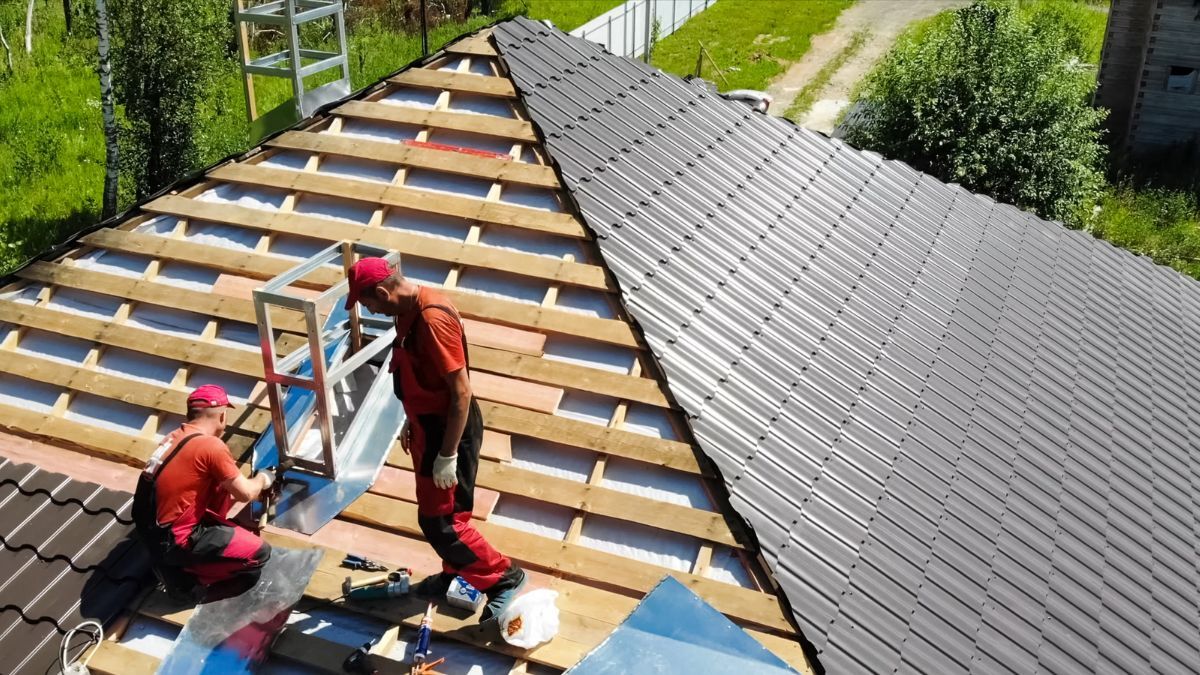Before embarking on a DIY roofing installation, it’s crucial to consider certain factors that may impact the feasibility of this project. The location of your home, weather conditions, your skill level, and the type of roofing material you plan to use all play a significant role.
The often harsh and unpredictable weather conditions in Massachusetts can pose additional challenges.
This article explores the practicality of DIY roofing installation for homeowners in Massachusetts, providing you with insights to decide whether this route is right for you.
Advantages and Disadvantages of DIY Roofing Installation in Massachusetts
Advantages:
- Cost Savings – The primary motivation for most homeowners to opt for a DIY roofing installation is the potential cost savings. However, let’s not forget that professional roofers, such as Mighty Dog Roofing North Boston, Massachusetts, are trained and experienced.
- Control Over Materials – Another advantage of DIY roofing installation is having control over the materials used. You can choose the quality and type of materials that fit your budget and preferences.
- Satisfaction in Accomplishment – For some, there is a great sense of satisfaction in completing a DIY project successfully. The same applies to roofing installation, especially if it’s your first time doing such a significant task.
Disadvantages:
- Safety Concerns – Roofing installation can be a dangerous task, especially for inexperienced individuals. Working at heights and handling heavy materials can put you at risk of accidents and injuries.
- Time-consuming – DIY roofing installation requires time, effort, and patience. It’s essential to have realistic expectations about the timeline of your project, as it may take longer than if done by a professional.
- Potential for Costly Mistakes – Inaccurate installation or improper sealing can lead to future leaks and costly repairs. This is why having the necessary skills and knowledge is crucial before attempting a DIY roofing project.
Considerations for DIY Roofing Installation in Massachusetts
Location of Your Home
The weather conditions in Massachusetts vary significantly, with hot summers and cold, snowy winters. Before deciding on a DIY roofing installation, it’s crucial to consider how these conditions may affect your project.
For example, if you plan to install a metal roof during winter, you may run into challenges due to freezing temperatures and potential snow buildup. Strong winds or heavy rain can also hinder progress and pose safety risks.
Your Skill Level and Experience
Roofing installation requires a certain level of knowledge and experience to ensure it’s done correctly. If you have no previous roofing experience, leaving this task to the professionals may be best.
However, if you have some DIY experience or are willing to put in the time and effort to learn, then a DIY roofing installation may be a feasible option.
Type of Roofing Material
The type of roofing material you choose can also impact the feasibility of a DIY installation. Some materials, such as asphalt shingles, are easier to install than others, like metal or tile roofs.
Researching and understanding the specific requirements and techniques for your chosen material is essential before attempting the installation yourself.
Required Tools to Complete the Job
You’ll need the necessary tools to complete a DIY roofing installation. These may include:
- Ladder
- Hammer
- Safety harness
- Roofing nailer
- Measuring tape
- Chalk line
Having all the required tools before starting your project is crucial to avoid delays or safety hazards.
Local Building Codes and Regulations to Keep in Mind
Before starting any roofing installation project in Massachusetts, it’s crucial to familiarize yourself with local building codes and regulations.
These may vary by city or town and can impact the type of material you can use, the slope of your roof, and other factors. It’s vital to ensure your DIY project complies with these codes to avoid potential fines or issues when selling your home in the future.
Conclusion
DIY roofing installation can be a feasible option for homeowners in Massachusetts, but it’s essential to consider various factors before making this decision.
Evaluating your skill level, weather conditions, and materials will help you determine if this is the right route for you. Additionally, always prioritize safety and follow local building codes to ensure a successful and compliant project.
Overall, it’s a doable project, but make sure to be realistic in whether you have the skills and tools to complete it.









